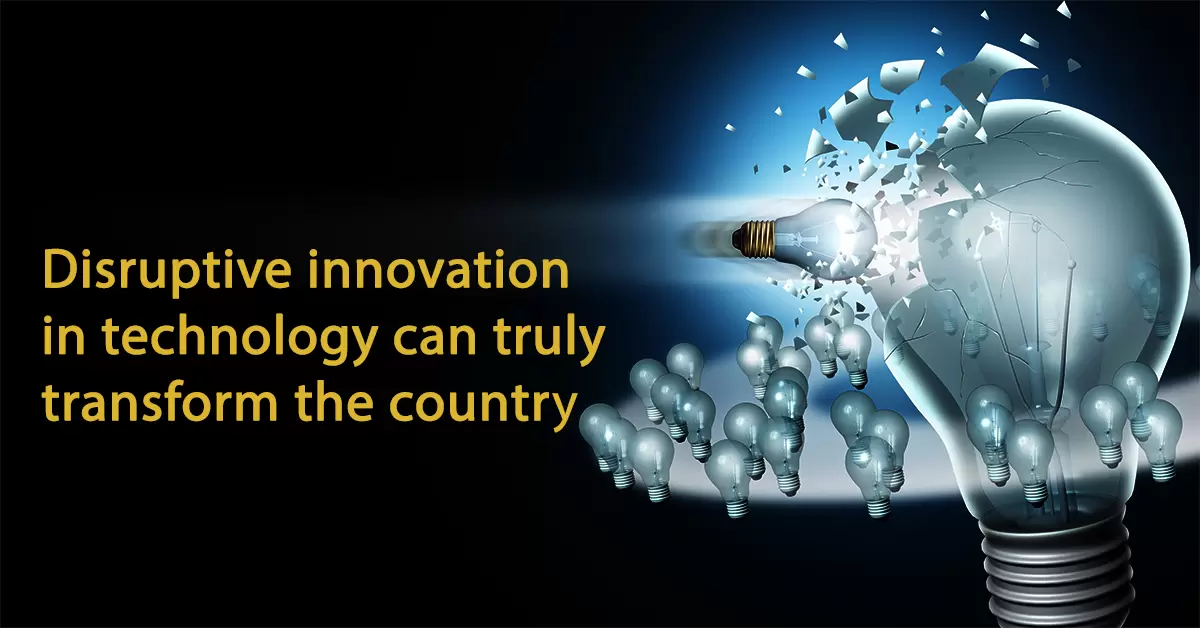Nivruti Rai is country head of Intel India and vice-president of the data centre group at Intel Corp.shares her expert opinion on livemint on Apr 20 2018.
Apart of my job that keeps me energized includes the numerous opportunities I get to interact with bright innovators, researchers and entrepreneurs. Every time I meet them, I get inspired not only by their infectious energy and commitment, but the tremendous possibilities they unleash by creating compelling technology solutions and use cases that truly transform lives.
Technologies such as artificial intelligence hold tremendous relevance and promise for India.
Disruptive innovations in technology
Some of the innovations can stretch one’s imagination, such as the artificial intelligence (AI)-based smart eye wear that assists visually impaired to navigate independently, search objects and recognize faces. Or, an Internet of Things (IoT)-based intelligent waste management solution that enables civic authorities with real-time data for ensuring faster and efficient cleaning. Or, a smart helmet that enables two-wheeler riders with voice-based navigation. These innovations, developed by start-ups, involve extremely sophisticated and complex systems engineering combining hardware, software, firmware and application capabilities. With constant efforts to advance their technical competence and engineering ability to come up with novel concepts and newer products, entrepreneurs are creating a new identity for India as a product innovation hub.
Combine this with the mature global innovation centres or design houses and you get accelerated local technology creation with relevant use cases for both local and global adoption.
The increasing global interest in India’s capability holds testimony to the country’s unique position as a key product development destination. While government initiatives such as Design in India, Make in India, and the formation of a high-level taskforce on innovation are serving to accelerate the growth of innovation and boost research and development (R&D), it is of critical importance that innovation, entrepreneurship and policy should work in tandem. It’s really amazing to experience the pace and intensity at which innovations are taking place at various levels— from edge devices and cloud computing to compelling use cases across health, education, environment, entertainment, agriculture, automotive and other sectors.
In this context, technologies such as AI, Advanced Driver Assistance System (ADAS), and 5G hold tremendous relevance and promise for India. Data is the key driver of these technologies, and hence termed as the new oil.
AI is driving the next wave of computing, transforming the way businesses operate and how people engage in every aspect of life. It thrives on three important concepts—collecting and leveraging data, training the data, and “inferencing the data”. With data as the base layer, AI is an umbrella that encompasses many technologies like machine learning and augmented reality with multiple use cases. It can be leveraged for computer vision in the automotive segment, for analytics in health and for speech recognition in fintech. Moreover, with data comes the need for security, analytics and connectivity. When all these are interconnected, we can churn out holistic technological solutions in important segments such as autonomous driving, vision computing or surveillance, health diagnosis and connected homes.
Then there is 5G, which is emerging as a tremendous opportunity. India needs to be on the top of this essential technology through industry partnerships; government support in terms of policy regulation, test-bed implementation and spectrum allocation is crucial. The department of telecom (DoT)’s plan to set up a development centre on 5G in partnership with IIT Madras is a step in the right direction.
While there is a lot of debate around the onset of autonomous driving in India, assisted driving is of much relevance. For a country that loses about 17 lives in an hour due to road accidents, better driving emerges as a panacea. The Karnataka government’s “Automotive Safety Innovation” project with industry collaboration is a case in point. One of the key requirements in the development of automotive safety systems and innovations is driving data. It involves collecting the scenarios around the vehicle, including road conditions, obstacles in the path, traffic lights, road signs and other road data that can help in understanding the vehicle’s current scenario and in taking next decisions. Such data is then used to train software algorithms and systems to identify similar scenarios and conditions in real time and assist the driver with the required action, thereby increasing the safety of commuters. Through industrygovernment collaboration in making such data available in India, there is a great opportunity for us as a technology ecosystem to drive value out of it and develop innovations specific to India.
I’m optimistic that India’s fast maturing ecosystem and growing aspiration for entrepreneurship hold the promise of pioneering technology development for global relevance.
Source – https://www.livemint.com/Opinion/JUJ1IfuzRpv23liwycpQqI/Disruptive-innovation-in-technology-can-truly-transform-the.html

